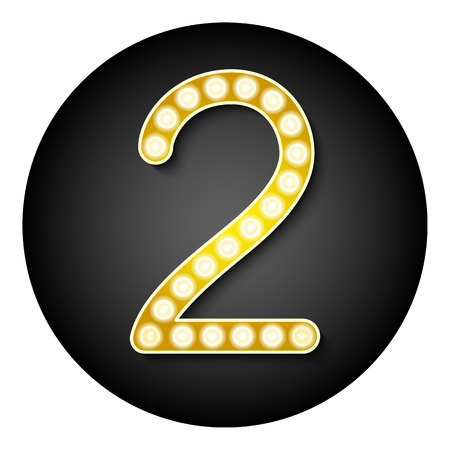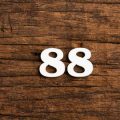Introduction: Two Ancient Systems Meet in Modern Britain
In the heart of modern Britain, where tradition and innovation often intermingle, two ancient systems have captured the curiosity of those seeking deeper self-understanding: runes and the I Ching. Both steeped in centuries-old wisdom, runes originated from the Germanic tribes of Northern Europe, while the I Ching traces its lineage back to ancient China. Despite their distinct cultural roots, these tools share a common purpose—guiding individuals towards personal insight and reflection. Over recent years, their resurgence across the UK has been marked not only by an increase in workshops and online communities but also by their presence in bookshops and lifestyle magazines. This renewed interest speaks to a broader trend within British culture: a desire to blend heritage with holistic well-being, drawing on global traditions to navigate contemporary life. Whether found in a cozy London flat or during a countryside retreat in the Lake District, runes and the I Ching are quietly shaping new pathways to self-discovery for many across the UK.
2. Runes: The Nordic Scripts Journey to British Mystic Circles
Runes, the enigmatic symbols carved by early Germanic peoples, have long fascinated those in search of deeper meaning. Originating in Scandinavia and Northern Europe, runes were not merely an alphabet but a vessel for myth, magic, and communication with the unseen. Their migration to the British Isles dates back to the era of Norse incursions and settlement, leaving their mark on both artefacts and collective imagination.
Each rune carries a unique symbolism—representing natural forces, human experiences, and cosmic principles. For example:
| Rune | Name | Symbolic Meaning |
|---|---|---|
| ᚠ | Fehu | Wealth, beginnings, material gain |
| ᚱ | Raidho | Journey, movement, evolution |
| ᛉ | Algiz | Protection, higher self, spiritual connection |
In contemporary Britain, rune casting has found new life among seekers interested in personal development rather than prophecy alone. Modern British mystics often turn to runes as tools for self-reflection—drawing upon ancient wisdom while adapting it to present-day concerns. A typical rune reading session might involve drawing a handful of runestones from a pouch, then interpreting their arrangement in relation to one’s current life situation.
This practice resonates particularly well with the British love for heritage and layered symbolism. Rune workshops are now fixtures at holistic fairs from Glastonbury to Edinburgh, where participants explore how these old Norse characters can illuminate modern dilemmas—from career crossroads to emotional healing. In this way, runes serve as both cultural artefact and living guide—a bridge between the UK’s historical tapestry and its ongoing quest for self-understanding.
![]()
3. I Ching: Chinese Wisdom Finds a Home in the UK
The journey of the I Ching, also known as the Book of Changes, from ancient China to modern Britain is a fascinating tale of cultural curiosity and open-minded exploration. The earliest British encounters with the I Ching can be traced back to 19th-century Sinologists and travellers, but it wasn’t until the post-war years—particularly following the publication of Richard Wilhelm’s translation and its introduction by Carl Jung—that the text truly captured the British imagination. Today, the I Ching is no longer just an exotic import; it has become a meaningful tool for self-reflection among a growing community of UK practitioners.
British interpretations of the I Ching are distinctly eclectic, blending traditional Chinese philosophy with local sensibilities. While some approach it with scholarly rigour, keen to honour its Confucian and Taoist roots, others weave its hexagrams into personal rituals or even group workshops in yoga studios from Brighton to Edinburgh. It’s not uncommon for UK-based readers to integrate elements of Celtic symbolism or Jungian psychology, making their I Ching practice uniquely British in flavour.
This openness has sparked a quiet but significant movement among those seeking deeper insight outside conventional frameworks. In cities like London and Bristol, you’ll find meetups where people share readings over tea, discussing how an ancient text might shed light on modern dilemmas—from career crossroads to relationship woes. The British flair for gentle scepticism paired with curiosity means that while many treat the I Ching as a serious spiritual resource, others enjoy it as a thought-provoking conversation starter, embracing its ambiguity rather than demanding clear-cut answers.
Ultimately, the presence of the I Ching in Britain reflects both a respect for global wisdom traditions and a willingness to adapt them creatively. As more Britons look beyond mainstream self-help towards cross-cultural sources of guidance, the Book of Changes continues to inspire fresh perspectives and new forms of introspection across the UK.
4. Methods & Rituals: A British Blend
When it comes to self-insight, the process can be just as meaningful as the outcome. In the UK, both runes and the I Ching have been embraced, not just as ancient systems, but as part of a modern, mindful lifestyle. While their origins are worlds apart, British enthusiasts have woven these practices into the fabric of daily life, putting a local twist on time-honoured rituals.
The Practical Steps: Runes vs. I Ching
| Runes | I Ching | |
|---|---|---|
| Preparation | Some prefer to light a candle or brew a cup of tea, setting the scene for contemplation. | A moment of silence with tea is common; a clean, calm space is valued for tossing coins or sticks. |
| The Ritual Itself | Drawing rune stones from a bag while focusing on a question; often done alone or in small groups at home. | Tossing coins (or yarrow sticks) six times to form a hexagram; sometimes read aloud in pairs for discussion. |
| Interpretation | Consulting guidebooks or mobile apps, with room for personal reflection—often paired with journaling. | Reading English translations and reflecting on ancient wisdom; some blend insights with mindfulness exercises. |
| Integration into Daily Life | Pocket-sized rune stones accompany walks in nature or lunch breaks in city parks—a portable practice. | I Ching quotes appear on post-it notes or digital reminders; some enjoy morning readings over breakfast. |
A Distinctly British Approach
Both methods have found their way into routines that feel quintessentially British. Afternoon sessions might feature a strong cuppa and quiet music—think less Viking bonfire, more armchair by the window. Book clubs and mindfulness groups sometimes blend both traditions, encouraging open-minded exploration without dogma. Even sceptics find value in the gentle pause these rituals offer—a chance to step back from the bustle and tune inwards.
The Hybrid Ritual: Mixing Traditions
It’s not uncommon for seekers to combine elements from both systems: perhaps drawing a rune before consulting the I Ching for deeper insight, or using both as journal prompts during reflective Sunday afternoons. This cross-pollination creates space for personalisation, making these ancient tools relevant for today’s diverse British audience.
5. Cultural Resonance: Why Do These Systems Speak to the British Psyche?
It’s no accident that both runes and the I Ching have found a receptive audience in the UK, where the national character is steeped in a blend of pragmatism and mystical curiosity. Britain’s landscape is dotted with ancient stone circles, standing stones, and megalithic sites—silent testaments to an enduring fascination with symbols, rituals, and divination. While runes echo the Northern European heritage that shaped much of early British culture, the I Ching taps into a wider appetite for Eastern philosophies that flourished alongside Britain’s imperial encounters and postwar countercultural movements.
A Legacy of Storytelling and Folklore
The British love of myth and legend provides fertile ground for systems like runes and the I Ching to thrive. From Arthurian tales to regional folklore, there’s a long-standing tradition of seeking wisdom through stories and symbols. This storytelling impulse means Britons often approach these tools as ways to weave new personal narratives, drawing on old motifs while searching for modern meaning.
Spiritual Curiosity Meets Rational Scepticism
Britain’s spiritual landscape is uniquely paradoxical: there’s a strong streak of scepticism—“put the kettle on and let’s not get carried away”—but also a willingness to experiment with alternative belief systems. This creates a cultural sweet spot where exploring divinatory practices isn’t seen as naïve, but rather as another layer in the patchwork of self-understanding. Runes offer a connection to ancestral roots; the I Ching offers an exotic yet intellectually intriguing framework for reflection.
Modern Adaptations in Urban Life
In contemporary UK society, where traditional religion has waned for many, people seek out meaning in diverse places. The appeal of both runes and the I Ching lies partly in their adaptability—they can be consulted over a cup of tea at home or discussed at length in urban mindfulness workshops. Their guidance fits neatly into a secular but spiritually curious Britain that values introspection without dogma.
A Bridge Between Past and Present
Ultimately, these systems resonate because they bridge history and modernity, offering Britons—whether by birth or by choice—a way to anchor themselves amidst change. By engaging with both runes and the I Ching, individuals tap into shared human desires for understanding, comfort, and transformation—echoes that ring out from ancient stones and distant philosophies alike.
6. Personal Reflections: Stories from UK Enthusiasts
In exploring the distinctive yet overlapping paths of runes and the I Ching, it’s only fitting to turn our attention to those weaving these traditions into the fabric of British life. From cosy London flats to windswept corners of the Lake District, countless individuals across the UK have found meaning—and sometimes unexpected clarity—in these ancient tools. Take Eleanor, a freelance designer in Brighton, who first encountered runes during a winter solstice gathering. She describes how drawing a single rune stone each Sunday helps her set intentions for the week, noting that “the tactile feel of the stones connects me to something older than my worries.” Meanwhile, Amit, a software engineer based in Manchester, discovered the I Ching while travelling through East Asia but now consults it before making significant career decisions. “There’s something reassuring about tossing coins on a rainy day and finding guidance in those poetic lines,” he shares. Some enthusiasts even blend both practices. For example, Tom and Sarah, a couple from Edinburgh, host monthly gatherings where friends compare rune readings with hexagrams from the I Ching over mugs of strong tea. They say the contrast between runic directness and I Ching nuance sparks lively debates and deeper self-exploration. These stories echo across the UK, revealing a tapestry of personal rituals shaped as much by local weather and British sensibility as by the symbols themselves. Whether seeking solace during grey Midlands afternoons or insight ahead of life’s unpredictable turns, Britons are adapting these ancient divinatory systems to navigate modern life on these storied isles.
7. Conclusion: Two Paths, One Love of Self-Discovery
As we reflect on the journeys offered by runes and the I Ching, it becomes clear that both systems provide distinct yet harmonious routes to self-understanding—each rooted in a different cultural landscape, yet both finding resonance here in the UK. Runes, with their earthy Northern mystique, invite us to tap into ancestral wisdom and intuitive symbolism; the I Ching, meanwhile, draws us into a dance with change and interconnectedness through its poetic hexagrams. While each approach is unique in its language and tradition, together they enrich Britain’s ever-evolving tapestry of self-insight and personal growth.
Embracing this diversity is not just about collecting tools—it’s about honouring the many ways people seek clarity, resilience, and meaning. By weaving Norse runes and Chinese philosophy into our daily lives, we celebrate a broader vision of wisdom that transcends borders and time. In a country known for its multiculturalism and curiosity, these ancient practices remind us that there are many paths to self-awareness, all deserving of respect.
Ultimately, exploring both runes and the I Ching isn’t about choosing one over the other. It’s about recognising how different perspectives can illuminate new possibilities for reflection and action. When we welcome such variety into our quest for understanding, we affirm the richness of British life—a place where ancient symbols meet modern seekers, and where every step towards insight adds another thread to our collective story.


